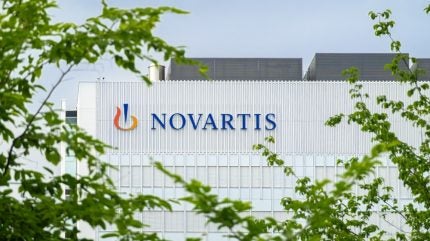
Novartis has ventured back to Monte Rosa Therapeutics tasked with finding more immune-mediated disease drug candidates, signing a licensing deal worth up to $5.7bn.
The agreement will see Novartis pay $120m upfront to Monte Rosa. Optional and milestone payments, as well as royalties on any drugs commercialised from the partnership, could see the total deal value reach $5.7bn.

Discover B2B Marketing That Performs
Combine business intelligence and editorial excellence to reach engaged professionals across 36 leading media platforms.
Shares in US-listed Monte Rosa surged 33% at market open to $7.18 compared to a pre-announcement market close. The biotech has a market cap of $401.2m.
In return for the hefty payment, Monte Rosa’s scientists will use their artificial intelligence (AI) and machine learning (ML)-powered platform to discover and develop molecular glue degraders, a class of small-molecule therapeutics that eliminate disease-causing proteins from cells.
The two companies were coy on the discovery target of the latest license agreement, saying that they will “collaborate on accelerating development of degraders for important immune-mediated diseases driven by highly credentialled and difficult-to-drug targets.”
As per the deal, Novartis also receives options to license two programmes from Monte Rosa’s preclinical immunology portfolio.

US Tariffs are shifting - will you react or anticipate?
Don’t let policy changes catch you off guard. Stay proactive with real-time data and expert analysis.
By GlobalDataMonte Rosa stated its publicly disclosed pipeline programmes are outside the scope of this agreement.
The deal marks the second time Novartis has tapped Monte Rosa’s services in just under year. The US big pharma company paid $150m to the biotech to use the platform – called QuEEN – in October 2024. That agreement gave Novartis exclusive rights to degraders including MRT-6160 that target the VAV1 protein.
The US biotech has since shared positive Phase I results for MRT-6160. The candidate demonstrated sustained and dose-dependent VAV1 degradation ability. There are now plans for Phase II trials with MRT-6160, according to Monte Rosa’s CEO Markus Warmuth.
“We are extremely excited to extend our relationship with Novartis beyond our previously announced VAV1 agreement given the strong progress made to advance MRT-6160 towards initiation of multiple Phase II studies in immune-mediated diseases,” Warmuth said.
Novartis’ president of biomedical research Fiona Marshall commented: “This new agreement underscores our commitment to advancing targeted protein degradation as a promising approach to address immune-mediated diseases with high unmet need. We believe Monte Rosa’s QuEEN platform has the potential to uncover new insights in this field.”
Novartis is not the only big pharma company attracted to Monte Rosa’s platform. In October 2023, fellow Swiss drugmaker Roche entered into a $2bn deal with the biotech, aimed at oncological and neurological indications.
Molecular glue degraders have become the focus of many deals recently in the pharma industry, with companies seeing the commercial appeal in a different mechanism of action compared to classic inhibitor drugs. In February 2025, Eli Lilly signed a $1.2bn collaboration with Magnet Biomedicine. Then in June, Gilead spent $750m on a molecular glue degrader deal with Kymera Therapeutics.




